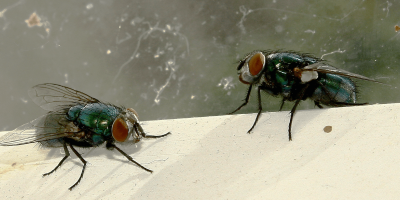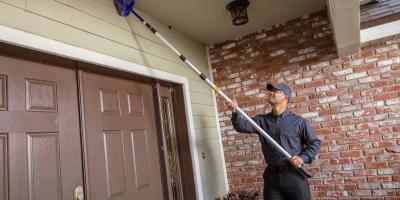What Business Owners Need To Know About Pest Control

Some business owners may hesitate to hire a pest control professional, thinking that an occasional pest sighting is no cause for concern, or that the cost of services might not be worth the benefits. Others might be skeptical of how a pest management service might aid their business, simply because they don’t know what to expect. Below, we answer two of the most common questions business owners have about pest control programs.
What’s The Most Important Aspect Of Controlling Specific Pests?
If your facility is plagued by a specific type of insect or animal, it is essential to understand that creature’s biology and behavioral patterns before implementing a plan of action. An integrated pest management (IPM) plan is a science-based system of solutions that heavily relies on knowledge of a pest’s habits. Pest control professionals have an assortment of strategies and tools at their disposal, and will devise the optimal solution for eliminating and preventing pests based on scientific observation of the insect’s or animal’s nature.
Understanding a pest’s food preferences, living habitats, life cycles, and climate choices is critical to the success of your IPM plan. It is important to know which pests are likely to be drawn to your company’s products or infiltrate your facility in order to establish effective preventive measures.
What Pest Is Most Likely To Cause Trouble At My Facility?
Rodents can be a threat to any company, but are an exceptional adversary to food-handling businesses. Customers will perceive your establishment as unsanitary or filthy at the sight of mice or rats, and will likely discontinue their patronage and encourage their friends to avoid your business like the plague (an appropriate simile, given the role of rats in the Black Death pandemic, circa 1350). Aside from the loss of business, one rodent infestation can result in a public relations nightmare, termination of employees, fines, and forced closures.
To escape the baggage that comes with many pest issues, it is critically important for every food-handling business to include an extensive rodent control program as part of its overall IPM plan, especially when cooperating with the Food Safety Modernization Act’s (FSMA) new emphasis on prevention. On the other hand, the Environmental Protection Agency (EPA) has instigated some challenges in preventive rodent control by limiting a facility’s use of rodenticide baits and traps.
Preventive measures should involve limiting rodents’ access to the facilities, and making the property inhospitable to rodents. Rodent control programs should mandate inspecting and sealing potential points of entry, checking deliveries for signs of rodent inhabitation, and placing traps and baits in safe-but-effective locations.
Do you need assistance with your facility’s pest management or audit preparation? Contact JP Pest Services today for a free commercial consultation. Our service professionals understand the specific requirements to keep New England businesses pest-free and in compliance with food safety standards.



